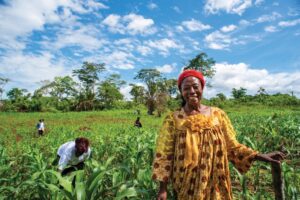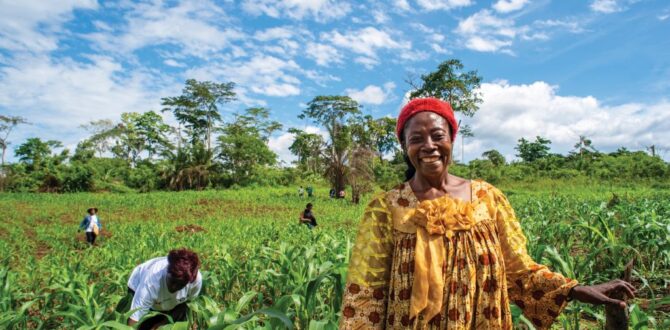Agriculture is the backbone of Cameroon’s economy and one of the main sources of livelihoods to many homes in the country. Changes in the rainfall patterns and atmospheric temperature in an unpredictable fashion is serving as a threat to this sector and greatly affecting farm yields.

Such unpredictable change in the weather pattern caused by climate, has generated grave frustration among farmers who see this as a threat to their livelihoods.
“Rainfall used to be between 2000ml to 2500ml per year. When it starts falling early or falls and stops abruptly at a certain period when heavy rains is expected, it becomes a problem. In 2021, the rains started falling by February 13 and by March 13 there were heavy rains. By September 20221 however, there was little or no rain fall,” the South West Regional Delegate of Agriculture and Rural Development (MINADER), Mr. Jackson Ntappi said.
Plants need the right quantity of water at the right time. If there is too much water at the wrong time, it will rot the seed in the ground leading to poor farm yield, he added. The absence of rainfall also gives the leeway for the armyworm to evade farms and destroy crops.
Way-out
To help farmers cope with the dilemma of changing climate, the Cameroon Ministry of Agriculture and Rural Development (MINADER) produces an estimate of rainfall patterns for the different agro-political zones. There is need to make this publication accessible to farmers in all the 10 regions of Cameroon, most especially those at the grassroots to avert the increasing food insecurity in the country.
Mr. Ntappi is also encouraging farmers, like those in Buea and other parts of the South West Region, to plant around August so that before October the crops must have germinated.
“Last year the rain stopped abruptly around October and there was a lot of loses. The most affected were maize and cocoa farmers,” he noted.
MINADER has equally implored farmers in Cameroon to practice irrigation. The Ministry believes that if water is properly managed, farm yields will still increase amidst changing climate. The ministry has over the years provided water pumps to some farmers in the country to assist them carry out irrigation.
Mr. Ntappi recommends that farmers should use drought and insect resistant seed varieties. To those involved in tomatoes cultivation, the MINAER-SW boss prefers they use the baker tomato seed, which has proven to be more drought-resistant than the cobra.
The Cameroon Government and agricultural experts have repeatedly called on farmers to accelerate second generation agriculture. This involves modernizing farming techniques, acquiring knowledge on climate-smart agriculture and securing innovative financing. Meanwhile, MINADER has dispatched community representatives to different communities in the country to advise and mentor local farmers.
While deriving different strategies to cope with the dilemma of posed by climate change, farmers will have to shun practices that contribute to ozone layer depletion. These include but not limited to deforestation and bush fire.
By Ndimuh B. Shancho & Sandrine Akeabeh







